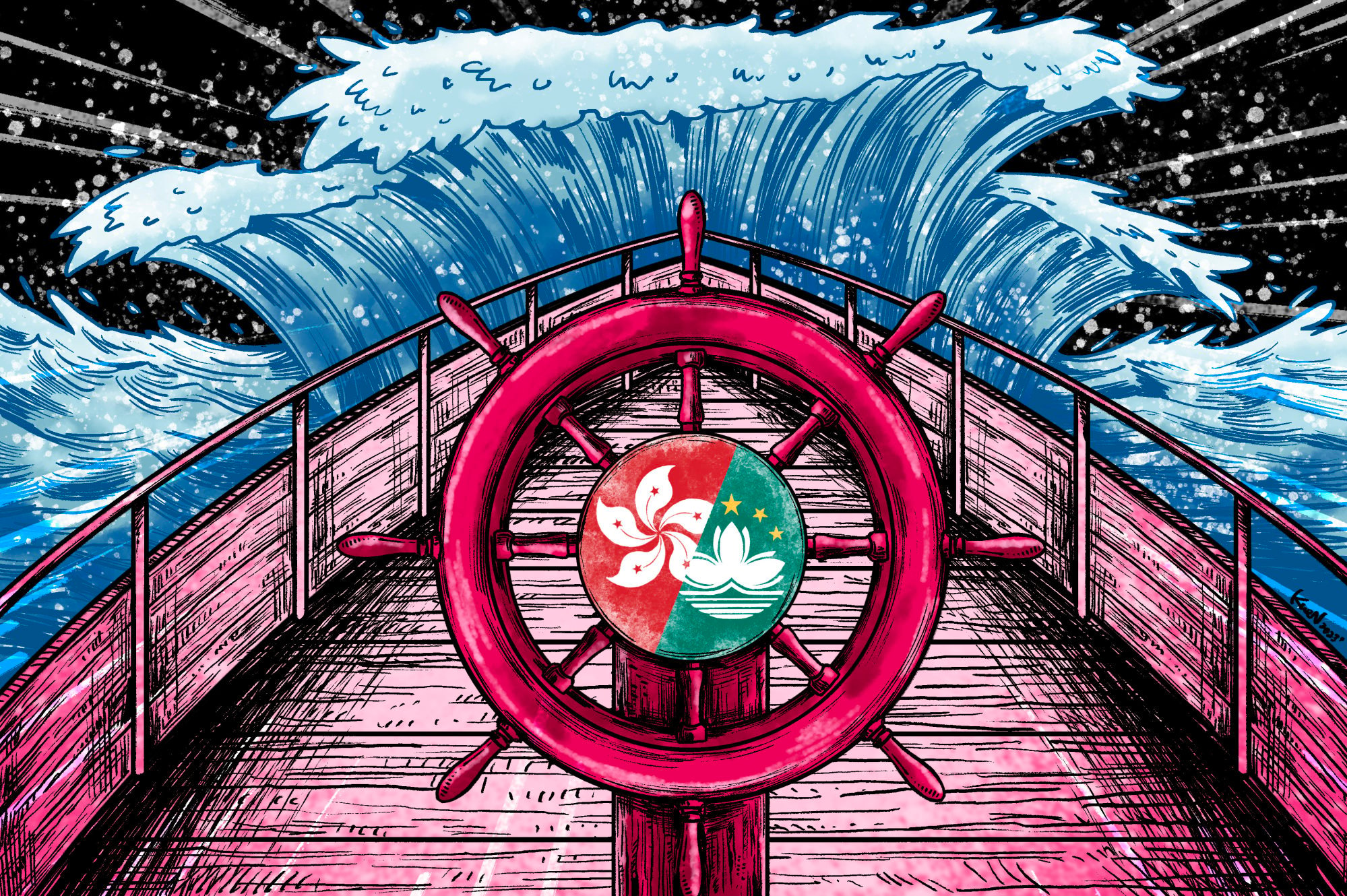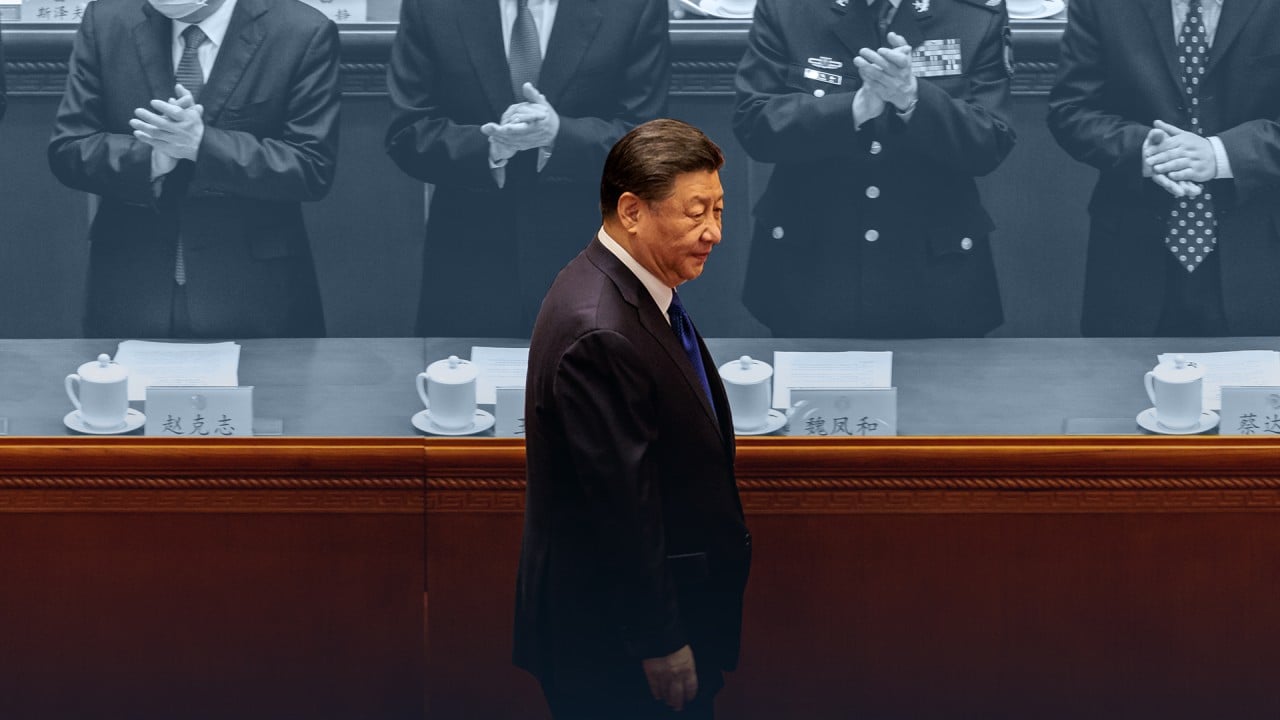
Global Impact: what’s expected from China’s ‘two sessions’?
- Global Impact is a weekly curated newsletter featuring a news topic originating in China with a significant macro impact for our newsreaders around the world
- In this edition, we look ahead as Beijing’s elite gather in Beijing for the annual sessions of the Chinese People’s Political Consultative Conference and the National People’s Congress
There are also hopes that regulatory actions will be normalised, after a wide range of industries, including the technology and real estate sectors, paid a heavy price over the last three years.
The two sessions will also see a new line-up of ministerial jobs, with the minister of finance, governor of the central bank, director of the National Development and Reform Commission and the minister of commerce all set to change. There will also be new faces on the diplomatic and defence fronts.
The new minister of foreign affairs, Qin Gang, will host his first press conference during the two sessions, days after returning from the G20 foreign ministers’ meeting in Delhi. Qin is also expected to take on the extra title of state councillor, further raising his status.
Former Guizhou party chief Shen Yiqin is likely to be confirmed as the most senior female official when Beijing unveils its state councillors, after a norm-breaking all-male Politburo was formed in October.
In the past five years, Han has played a central role in key policies, including carbon reduction and China’s Belt and Road Initiative, and he is expected to bring his wealth of experience.
A far-reaching overhaul involving multiple party organs and state institutions is also in the pipeline, and analysts say it will look a lot like the one that took place in 2018, when a large chunk of portfolios were transferred from the State Council.
Part of that plan – involving the State Council – is expected to be unveiled during the legislative session, but the public is not expected to see the full scale of it until after the two sessions, when details about the restructuring related to party organs are announced.
The completion of the months-long game of musical chairs, which started with the 20th party congress, will also mean that the last pending top jobs at party organs will be announced soon afterwards.
They include two very important party jobs, director of the central organisation department, which oversees party members, and director of the party’s general office, who is also Xi’s de facto chief of staff.
60-Second Catch-Up
Deep Dives

Xi Jinping to focus on economic stability, technological self-reliance in China after ‘two sessions’, analysts say
-
Two sessions will see dozens of new faces assigned to government positions
-
But key decisions will continue to be made by president and party chief Xi Jinping
According to China’s political calendar, with its top government positions in five-yearly transition mode and the lame ducks on their way out, the past four months or so should have been mundane.

Who are Wang Huning and Ding Xuexiang, the candidates in line to head Communist Party’s Central Leading Group on Hong Kong and Macau Affairs?
-
Wang Huning or Ding Xuexiang, both Politburo Standing Committee members, could succeed Han Zheng
-
Analysts say political clout of a top party leader needed to make decisions and cut through red tape
Two senior Communist Party leaders – one tipped to be named a vice-premier and the other head of China’s top political advisory body – are Beijing’s leading candidates to oversee Hong Kong and Macau affairs, analysts said.

China’s ‘two sessions’ 2023: how will Li Qiang’s pro-business past and pragmatism help tackle China’s growing pains?
-
Analysts say that holding the trust of President Xi Jinping will grant Li Qiang a higher degree of autonomy in economic affairs, allowing him to take bold actions
-
Li’s expected elevation to premier would make him the first such Chinese leader in three decades to have no previous experience in the central government or in west China
With Li Qiang poised to take the premiership baton that will put him firmly on track to run the world’s second-largest economy, the onlooking crowd is already debating and dissecting the big questions over his would-be role, work style, policies and priorities.
Historically, the 63-year-old has shown himself to be a pragmatist with a strong business-oriented mindset, but his relatively low profile until recently has left the market scrambling for signs or indications of how he would manage far more sophisticated domestic issues while countering US decoupling pressure at the central-government level.

China’s ‘two sessions’ 2023: all eyes on Beijing as lawmakers plot post-pandemic economic recovery
-
China is expected to set an economic growth target of above 5 per cent for 2023, as consumers and investors re-engage in business activities post-pandemic
-
But to reach the goal and restore business confidence authorities must overcome slowing demand for exports, rising geopolitical risk and property sector woes
For Raymond Zhang, a Shanghai resident who works in the logistics industry, the business environment right now is the most difficult since the start of the coronavirus pandemic, despite an end to China’s zero-Covid policy.
Once scarcely available, empty shipping containers are now stacking up at the Shanghai port, known as the world’s busiest for container throughput, he said.
Global Impact is a fortnightly curated newsletter featuring a news topic originating in China with a significant macro impact for our newsreaders around the world.


